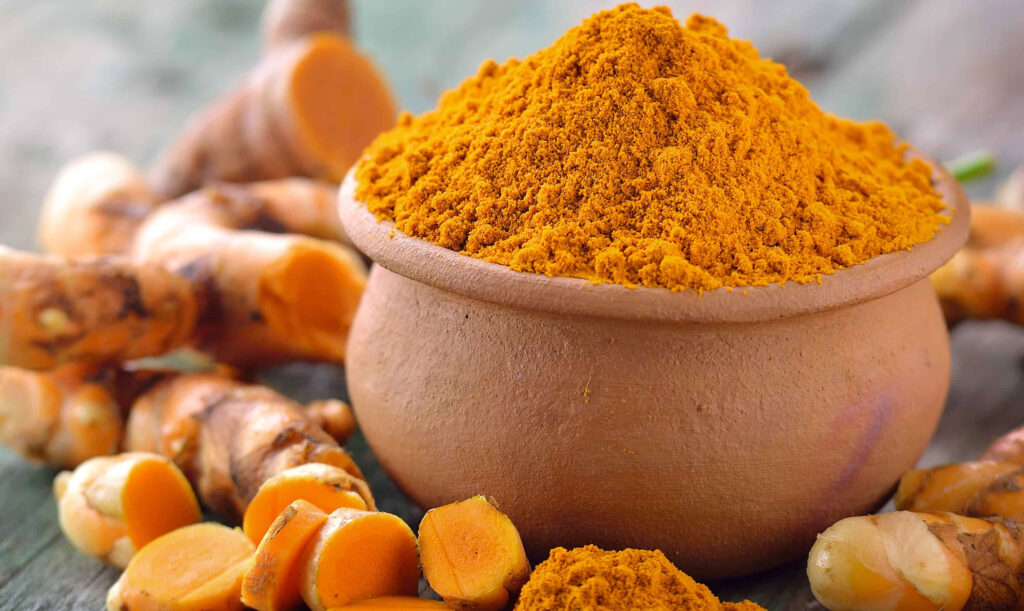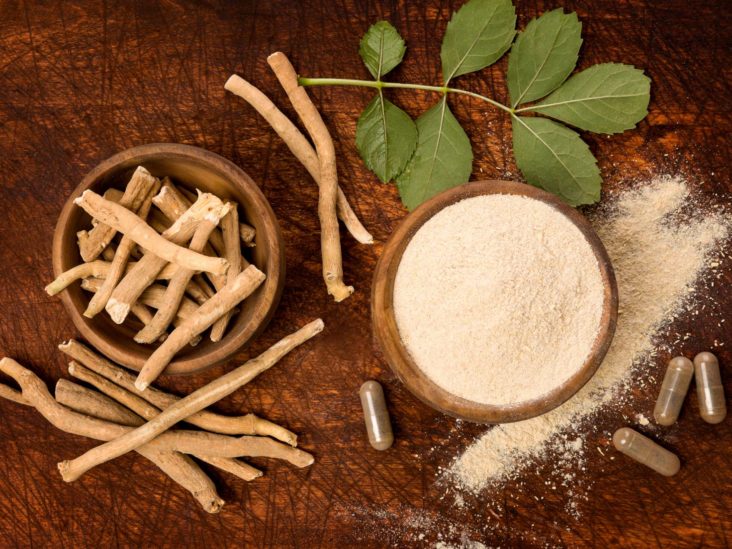Curcuma: l’erba d’oro
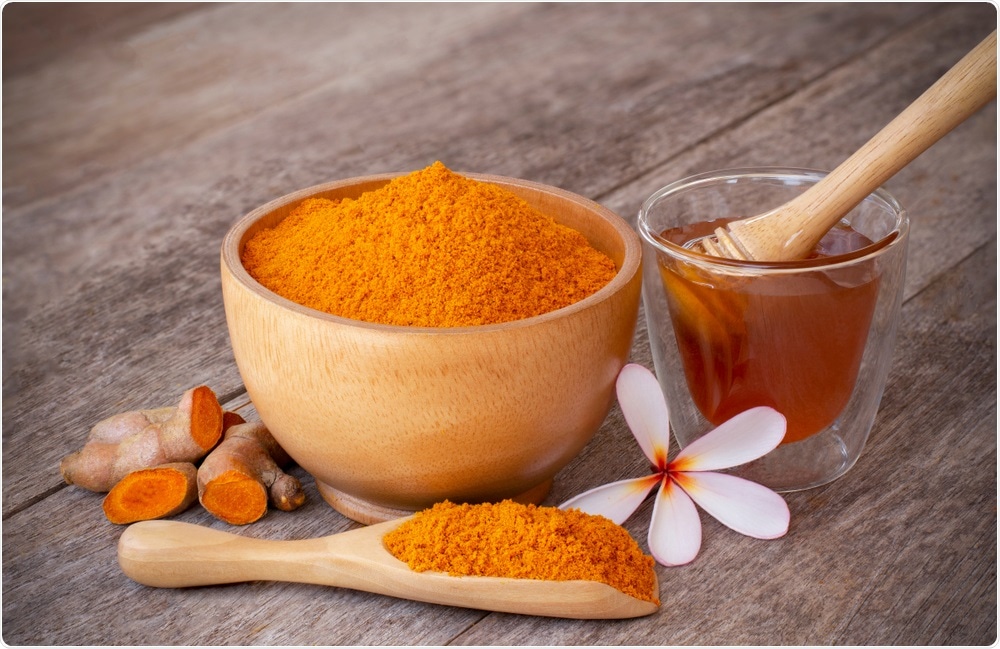
La curcuma è un alimento base nelle cucine indiane – sia per aromatizzare i nostri curry o scaricato nel latte bollente per alleviare un naso che cola. Che si tratti della vertigine della febbre, di un breakout dell’acne o di un livido lento da guarire, la curcuma ha sempre trovato la sua strada nei rimedi casalinghi di nostra nonna.
La curcuma (Curcuma longa) è una pianta erbacea perenne della famiglia dello zenzero. È originario delle regioni tropicali ad alta piovosità dell’Asia meridionale e coltivato prevalentemente in India. La curcuma indiana è considerata la migliore al mondo per le sue qualità intrinseche e l’alta biodisponibilità della curcumina. La polvere di curcuma dorata si ottiene macinando il fusto sotterraneo della pianta, un rizoma. L’uso della curcuma come ingrediente culinario risale al 2000 aC Vedic India.
Le proprietà curative della curcuma la rendono un’erba sorprendente, utilizzata in molte formulazioni ayurvediche. La curcuma è conosciuta come Haridra in sanscrito, che significa quella che adorna Hari o Lord Vishnu. Il suo colore giallo radioso è di buon auspicio e parte integrante di vari rituali. Possiede molteplici proprietà curative e ha proprietà antiossidanti e antinfiammatorie.
Questa vivida spezia gialla è stata salutata come un superalimento. La curcumina, uno dei componenti attivi più importanti della curcuma, è stata ampiamente studiata a causa delle sue proprietà antinfiammatorie. Migliora l’immunità e aiuta a mantenere i livelli di zucchero nel sangue. Aiuta nella digestione sana e aumenta il tuo umore.
Curcuma in Ayurveda

In Ayurveda, la curcuma è classificata come Vayasthapana, o restauratore dell’età, e Ojo vardhana, o booster di vitalità. Bilancia Vata e Kapha dosha a causa della sua ushna o potenza calda. Bilancia Pitta per la sua amarezza. Quindi, bilancia tutti e tre i dosha. Supporta Rasa dhatu (plasma) e Rakta dhatu (sangue) sani e nutre il sistema circolatorio facendo circolare i suoi benefici per la salute in tutto il corpo. Supporta Agni (metabolismo sano) e quindi mantiene la forza digestiva ottimale.
Proprietà della curcuma

La curcuma ha molte proprietà che la rendono un ingrediente inestimabile in molte formulazioni ayurvediche. Diamo un’occhiata ad alcune delle proprietà importanti della curcuma:
- Turmeric for pimples: Curcumin, the active principle of turmeric, has potent anti-microbial properties. Since ancient times, it has been a well-known and effective remedy for many skin issues.
- Turmeric for pain relief: Enriched with anti-inflammatory properties, turmeric is effective in joint issues.
- Antioxidant: Turmeric is a rich source of antioxidants, protecting the body from the adverse effects of free radicals.
- Turmeric for Diabetes: Turmeric possesses anti-diabetic properties, helping decrease blood sugar levels and may reduce the effects of diabetes complications.
- Turmeric for weight loss: Turmeric is a metabolism booster that reduces fat tissue growth.
Benefici per la salute della curcuma
Haridra (curcuma longa) o curcuma è lo zafferano indiano e la spezia dorata. I benefici di Haridra sono stati ampiamente discussi nei testi classici di Ayurveda. Il fatto che Haridra abbia 80 sinonimi è una testimonianza dei suoi benefici utilitaristici identificati migliaia di anni fa.
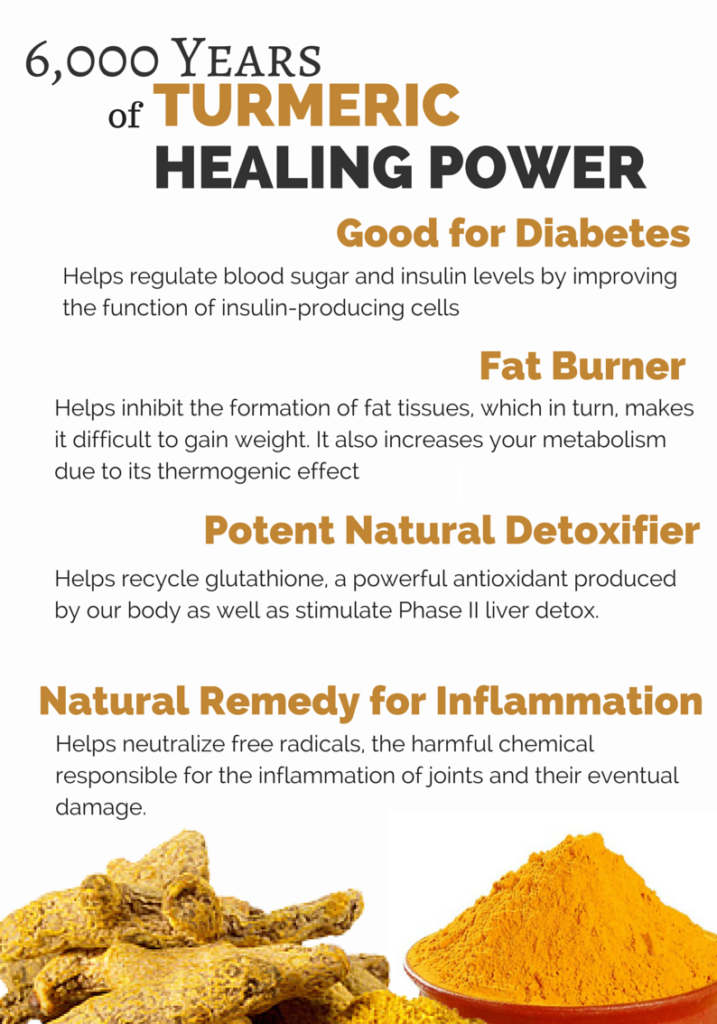
- Turmeric for immunity – Turmeric is known as an immunity booster herb. Curcumin, an active compound found in turmeric, has anti-inflammatory properties that can help fight colds, flu, and other microbial diseases. Turmeric milk, or Haldi doodh has traditionally been a healing remedy for colds and coughs.
- Turmeric for pimples – Turmeric has been linked to beauty therapies because of its skin healing properties. It has over 300 antioxidants that help brighten skin and prevent breakouts. A face pack of sandalwood, turmeric, and milk can effectively remove tan.
- Turmeric for wound healing – Turmeric has antiseptic properties that can promote quick wound healing. Topical application of turmeric over fresh or chronic wounds promotes faster wound healing. It also prevents and cures fungal infections.
- Turmeric for digestion – The antioxidant and anti-inflammatory property of turmeric boosts digestion and soothes the stomach lining. The Katu (pungent) taste escalates the Agni (digestive power) and facilitates the secretion of digestive juice.
- Turmeric for cholesterol – Turmeric improves your blood vessels’ function and keeps cholesterol in check. It helps improve circulation and reduces the triglyceride levels.
- Turmeric for pain relief and joint health– It improves the functioning of joints by easing joint pain and improving flexibility. It can help reduce the inflammation of joints, relieving swelling. Due to curcumin’s presence, turmeric helps relieve joint issues. It is inherently Vata-kapha pacifying in nature and has a soothing effect on the locomotor system. Ayurveda Acharya Vagbhata included turmeric in the Haridradi group, indicated for curing rheumatism. Contemporary studies have confirmed that curcumin, the key ingredient of turmeric, protects soft tissues, including cartilage.
- Turmeric for brain health – Curcumin boosts levels of the brain hormone BDNF. This hormone boosts the growth of new neurons and may help fight various brain degeneration. It is also said to improve memory and concentration and reduce anxiety.
- Turmeric for liver – Turmeric helps in detoxification and helps maintain liver health. Studies have confirmed that it may help heal nonalcoholic fatty liver. It helps reduce oxidative stress and assists in liver regeneration.
- Turmeric for diabetes – Turmeric helps reduce blood sugar and associated complications in type 2 diabetes. It also assists in healthy weight management. It improves fasting blood sugar levels and insulin resistance.
Curcuma Home rimedi
Come le persone sono ben consapevoli di molti benefici curcuma, è stato ampiamente utilizzato nei rimedi casalinghi. Diamo un’occhiata ad alcuni usi ben noti della curcuma:
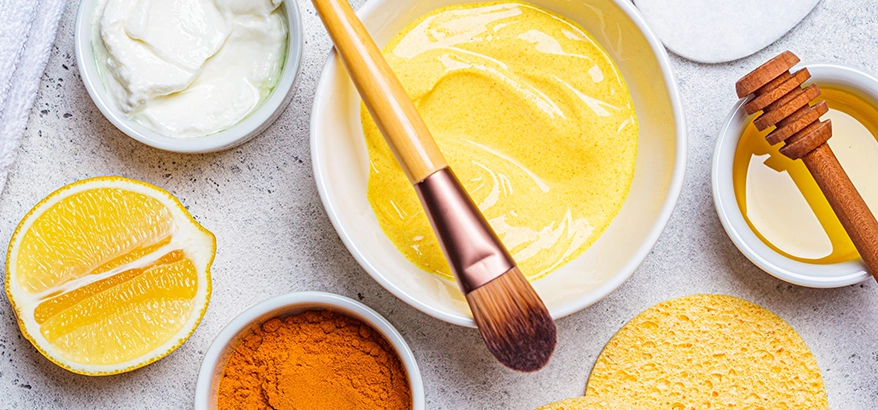
- Turmeric milk is a traditional, soothing drink, often called golden milk, used to soothe a sore throat and other inflammatory conditions. To prepare Turmeric milk, add ¼ teaspoon of turmeric and a pinch of black pepper powder into a glass of warm milk and drink. This turmeric milk is well known for treating colds and coughs. It is also suitable for promoting sleep. Adding pepper helps in better absorption of curcumin.
- Turmeric is used in many face packs. Because of its antimicrobial and healing properties. For oily skin, use of turmeric powder with lemon juice or multani mitti, and for dry skin, use it with milk as a face pack. Apply it for 10-15 minutes and wash with cold water. It helps clear pigmentation, acne, blemishes, and tan.
- For relieving a sore throat, mix one teaspoon honey with ½ teaspoon turmeric powder and consume 2-3 times a day.
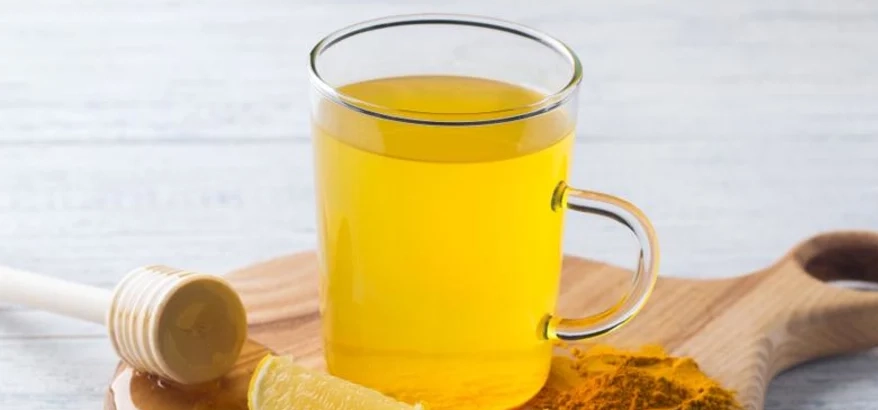
- Turmeric tea is a soothing and warm blend of herbs steeped slowly to detoxify your body. Boil 200 ml of water and add one inch of freshly grated turmeric or ½ teaspoon of turmeric powder. Strain and add one teaspoon of lemon juice and honey as required.
- Mix one tablespoon of amla juice with a pinch of turmeric and consume on an empty stomach to balance your blood sugar levels.
Effetti collaterali della curcuma
La curcuma è sicura per il consumo. Le cucine indiane usavano la curcuma nei tempi antichi. Tuttavia, si dovrebbe conoscere i potenziali effetti collaterali della curcuma durante l’utilizzo come integratore o prenderlo in grandi quantità.
- If taken in large quantities, turmeric might cause gastric irritation, diarrhea, or mild discomfort.
- Some commercially available turmeric powders with harmful colorants and fillers, such as rye might be adulterated. These can cause ill effects, so always consume turmeric from reliable sources.
- Turmeric has an anti-coagulant effect, so if you are on blood thinners like warfarin, it may lead to excessive bleeding.
- Turmeric might lead to drug interactions if you are on other medications. If you are on any other medication or have any health issues, it is better to consult your Doctor before taking any turmeric or curcumin supplement.
- Turmeric might stimulate contractions, so any turmeric or curcumin supplement should be avoided by pregnant women.
Takeaway chiave
- Turmeric is a herb with potent healing properties
- This golden spice has a particular affinity towards blood and promotes detoxification.
- Turmeric has immense health benefits that range from managing diabetes to improving heart health.
- It is essential to consume turmeric or curcumin supplement only from reliable sources to avoid possible side effects of adulterated turmeric.
- Adding a pinch of black pepper can help better to absorb curcumin, the active component of turmeric.
